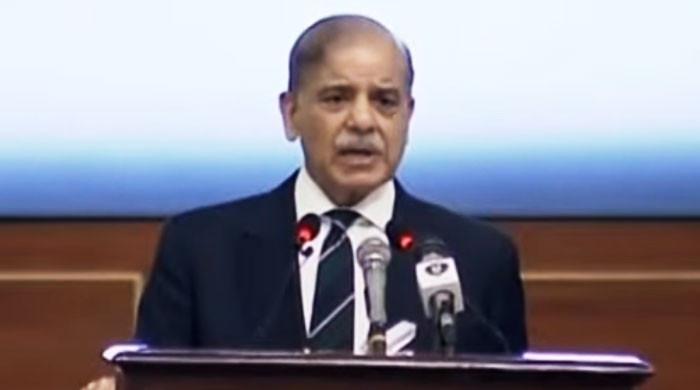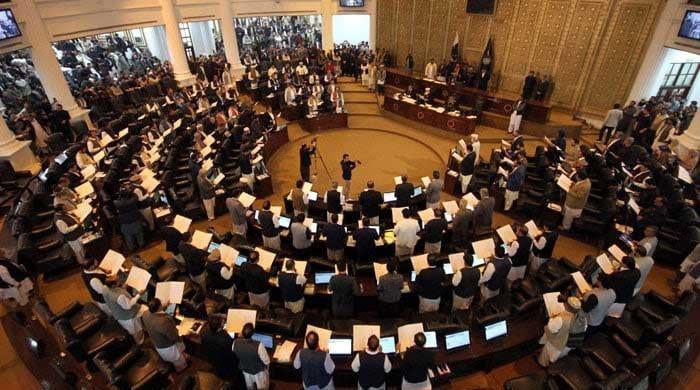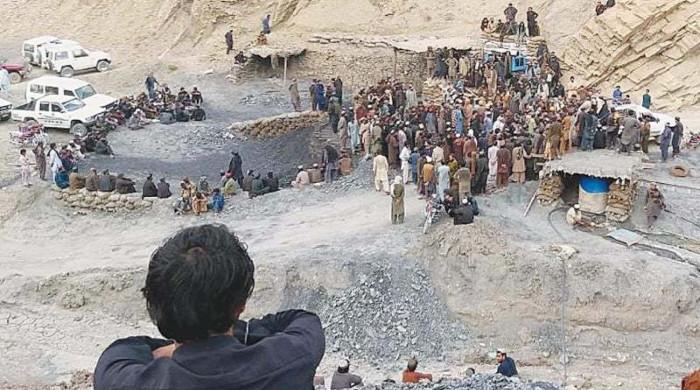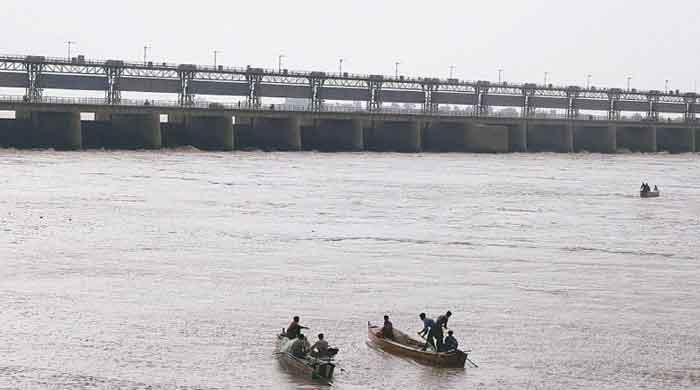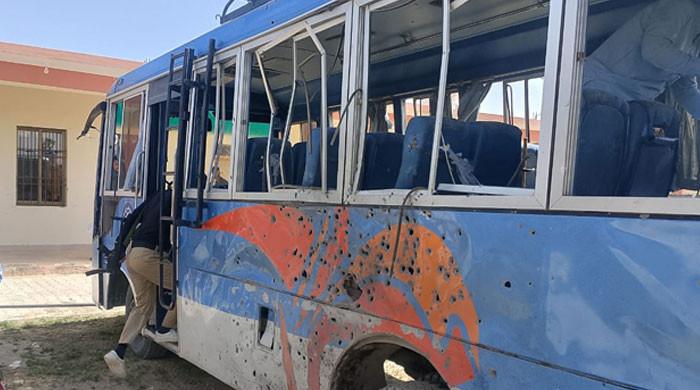SCBA, IMF discuss strategies to combat corruption, promote good governance
IMF's GCDA is currently in Pakistan to review the judicial framework as part of ongoing $7bn EFF
February 14, 2025

- IMF's team on visit to conduct governance, corruption diagnostic assessment.
- SCBAP chief put forward need to eradicate financial crimes to boost economy.
- Rauf Atta, IMF discuss strategies to tackle corruption in gov't departments.
Representatives of the Governance and Corruption Diagnostic Assessment (GCDA) team of the International Monetary Fund (IMF) met with members of the Supreme Court Bar Association of Pakistan (SCBAP) on Friday and discussed shortcomings of the judicial system and combatting corruption in the governmental departments.
The SCBAP team was led by the president of the association, Mian Muhammad Rauf Atta. A delegation of the IMF is currently in Pakistan to review the judicial framework as part of the ongoing $7 billion Extended Fund Facility (EFF).
The Ministry of Finance (MoF) said in a statement earlier that the IMF's technical mission team is visiting the country to conduct a governance and corruption diagnostic assessment. The team will examine six key governance-related sectors and institutions, the statement added.
The GCDA report would recommend actions for addressing corruption vulnerabilities and strengthening integrity and governance, which will assist the government in bringing about reforms for promoting transparency, strengthening institutional capacities and achieving inclusive and sustainable economic growth, the ministry had said.
'Judicial shortcomings'
During today's meeting, the chairman of the bar association addressed the shortcomings of the judicial system of the country such as the lack of judges, inefficiencies within departments and potential measures like Alternative Dispute Resolution (ADR) to lessen the burden on the courts.
The SCBAP and the team from the IMF discussed various strategies to tackle corruption in governmental departments, to promote and work for good governance and implementation of legal reforms which in turn would benefit the judicial hierarchy, the statement added.
In the meeting, Rauf Atta was accompanied by Member Pakistan Bar Council Hassan Raza Pasha, Additional Secretary SCBAP Muhammad Aurangzeb Khan and President High Court Bar Association Balochistan, Mir Attaullah Langove.
The president emphasised and put forward the need for measures to eradicate financial crimes to boost the economy and noted that a system of accountability and rewarding is already in place within the judicial system where the Supreme Judicial Council oversees complaints against judges of the higher judiciary.
The statement from the SCBAP also conveyed that the chairman of the council described the rule of law as a "cornerstone of a democratic society and reaffirmed his commitment to uphold it, along with the SCBAP's dedication to the Constitution, the supremacy of institutions, and the independence of the judiciary".
The meeting wrapped up on a positive note with both sides expressing gratitude and a desire for more frequent meetings in the future.
Meeting with CJP
Earlier, the GCDA met with the Chief Justice of Pakistan (CJP) Yahya Afridi and hailed the ongoing reforms aimed at strengthening governance and accountability.
According to a press release issued by the Supreme Court on Tuesday, the chief justice provided an overview of "the ongoing efforts to enhance judicial performance".
He informed the delegation, led by Joel Turkewitz, that the judiciary in Pakistan is independent, and being head of the institution, it is his responsibility to protect the independence.
The CJP further said that the judiciary is not used to direct interaction with such missions but since the Finance Division requested, this interaction is taking place. He also said he would be "quite guarded to his comments and views".
Furthermore, the statement said, CJP Afridi highlighted key constitutional developments concerning the Judicial Commission of Pakistan and reforms, including senior-level judicial appointments, judicial accountability, and the restructuring of the JCP.
Speaking to journalists separately, the chief justice said he briefed the IMF delegation on Pakistan’s judicial system and ongoing reforms. The discussion also covered the appointment of judges and constitutional amendments.
Chief Justice Afridi said that he informed the IMF delegation that the judiciary operates independently under the Constitution. He added that it was not the judiciary’s role to provide the IMF with all the details they sought.
"I informed the delegation about the agenda of the National Judicial Policy-Making Committee (NJPMC). The supervision of subordinate courts falls under the jurisdiction of high courts.
"The delegation expressed interest in Pakistan’s adherence to agreements and property rights, to which I responded that reforms are underway,” he added.
According to the chief justice, the IMF delegation was briefed on judicial reforms and the national judicial policy.
“The delegation provided suggestions regarding the protection of property rights. I assured them that we would consider their recommendations. They were also informed that special benches would be formed in high courts to expedite hearings,” he added.
The chief justice further revealed that the IMF delegation emphasised the need for foreign investment protection in Pakistan. In response, he said: “We would require artificial intelligence (AI) for the judiciary’s efficiency.”
The CJP emphasised the importance of transparency regarding the visit of the IMF delegation to the Supreme Court, saying that the public has the right to know the facts.
CJP Afridi revealed that Prime Minister Shehbaz Sharif had sent him a letter informing him of the IMF’s concerns.
In response, he conveyed a message to the prime minister through the attorney general, stating that he would not reply to the letter in writing. Instead, he invited the prime minister to visit the court alongside the delegation.




